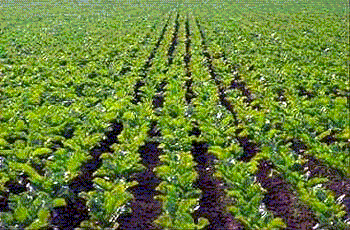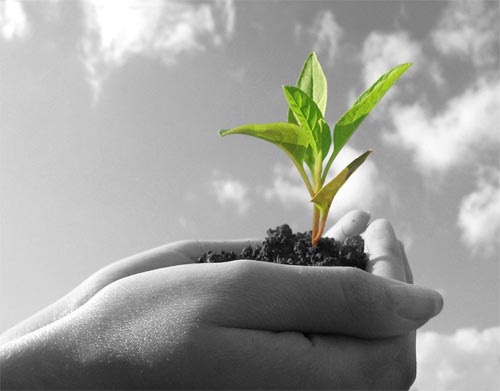One of the more remarkable achievements of the 20th century was our ability to tell the story of the universe from empirical observation and with amazing insight into the sequence of transformations that has brought into being the Earth, the living world and the human community. There seems, however, to be little realization of just what this story means in terms of the larger interpretation of the human venture.
For peoples, generally, their story of the universe and the human role in the universe is their primary source of intelligibility and value. Only through this story of how the universe came to be in the beginning and how it came to be as it is, does a person come to appreciate the meaning of life or to derive the psychic energy needed to deal effectively with those crisis moments that occur in the life of the individual and the life of the society. Such a story is the basis of ritual initiations throughout the world. It communicates the most sacred of mysteries.

Khor Yug (Environment) / Calligraphy by Thrangu Rinpoche
The deepest crises experienced by any society are those moments of change when the story becomes inadequate for meeting the survival demands of a present situation. Such, it seems, is the situation we must deal with now.
The great historical vision of Saint Augustine in The City of God, written in response to the burning of Rome by the Goths in 410 C.E., provided much of the guidance and energy for bringing forth European medieval civilization, and in that manner, for creating the Western world as we know it, both in its grandeur and in its disturbing qualities...Even in those medieval times, it was already clear that a rising money economy was diverting the human community from its more authentic destiny.
UNEP Green Economy Initiative Assesses Role of Sustainable Agriculture in Boosting Exports, Livelihoods and Jobs Across the Region - The potential to create a booming organic agriculture sector across Eastern Europe, the Caucasus and Central Asia is the focus of a study announced today by the UN Environment Programme (UNEP).
Geneva, 12 April 2010

UNEP is partnering with the International Federation of Organic Agriculture Movements (IFOAM) to examine the economic, employment, poverty reduction and environmental benefits that could be achieved through greater investment in sustainable agriculture in the Eastern Europe, Caucasus and Central Asia (EECCA) region.
This latest Green Economy Initiative project, being conducted at the request of environment ministers of the UN Economic Commission for Europe region, will include a sub-regional analysis and national studies in Ukraine, Armenia and Moldova.
National workshops will be organised in the three countries to consult a broad range of stakeholders, and the first forum in Armenia will be held tomorrow (13 April).
The study, funded by the Government of Sweden, will build on the findings of a 2007 report on sustainable consumption by UNEP and the European Environment Agency which concluded that the EECCA region's low use of synthetic fertilisers and pesticides, and its availability of workers presented good prospects for the growth and export of organic food products to Western Europe.

According to the IFOAM, organic agriculture worldwide is developing rapidly with 35 million hectares of agricultural land managed organically by almost 1.4 million producers in over 150 countries, and the European Union is one of the world's largest and fastest growing markets for organics.
Yet the share of organic farmland in Ukraine and Moldova is less than 1%, while sustainable farming is just beginning in Armenia.
Achim Steiner, UN Under-Secretary-General and UNEP Executive Director, said: "Organic agriculture can trigger sharply polarized views, sometimes presented as the anti-dote to modern, intensive agriculture systems or cast as a niche, luxury market for the few and the rich.
"But there is increasing evidence from Africa and elsewhere that organic agriculture can play its part in feeding the world and in meeting various sustainability goals, from water and improved soil quality to delivering higher levels of employment and conservation of biodiversity," he said.
]]> Last December, a very large majority of the scientific community and most politicians would have agreed that the scientific evidence of human-induced climate change was unequivocal and that the only question was whether the world’s political leaders could agree in Copenhagen to meaningful legally binding greenhouse gas emission reduction targets.
Last December, a very large majority of the scientific community and most politicians would have agreed that the scientific evidence of human-induced climate change was unequivocal and that the only question was whether the world’s political leaders could agree in Copenhagen to meaningful legally binding greenhouse gas emission reduction targets.
But, as we now know, the negotiations only produced an aspirational target—to limit the global mean surface temperature to no more than 2 degrees C above pre-industrial levels—and an accord that does not bind any country to reduce their emissions.
Since then, the IPCC’s Fourth Assessment report has been criticized for errors or imprecise wording.
- For example, the statements that the Himalayan glaciers would melt by 2035 or earlier (IPCC admitted that this was an error and not evidence-based);
- that agricultural production in some North African countries would decrease by up to 50% by 2020 (the synthesis report did not contain the nuances and more detailed discussion in the underlying chapter);
- and that over half of the Netherlands was below sea level rather than a quarter (this was largely a definitional issue – the Netherlands Dutch Ministry of transport uses the figure 60% - below high water level during storms).
These inaccuracies, coupled with the controversy surrounding illegally hacked e-mails and temperature data from the University of East Anglia (UEA), have provided climate skeptics and some media with ammunition to undermine public confidence in the conclusions of the IPCC and climate science in general.
]]>
In the last few decades, international biodiversity diplomacy (bio-diplomacy) has undergone deep changes in both its nature and scope. These changes have been characterized by an intensification and diversification of relevant constituents and actors, the increased complexity of relevant subject matter, and a broadening of the diplomatic agenda to include areas with a strong connection to science and technology policy, business, standard setting, and rule making.
Global challenges facing the international community today include the creation of safe and equitable mechanisms and institutions capable of providing effective guidance for the development and use of biotechnology, the links between climate change and biodiversity, traditional knowlege and adaptation to climate change and indigenous peoples.
A greater level of awareness among relevant actors is needed within this complicated environment regarding the scientific, governance, and ethical issues that now take up so much space across diplomatic agendas.